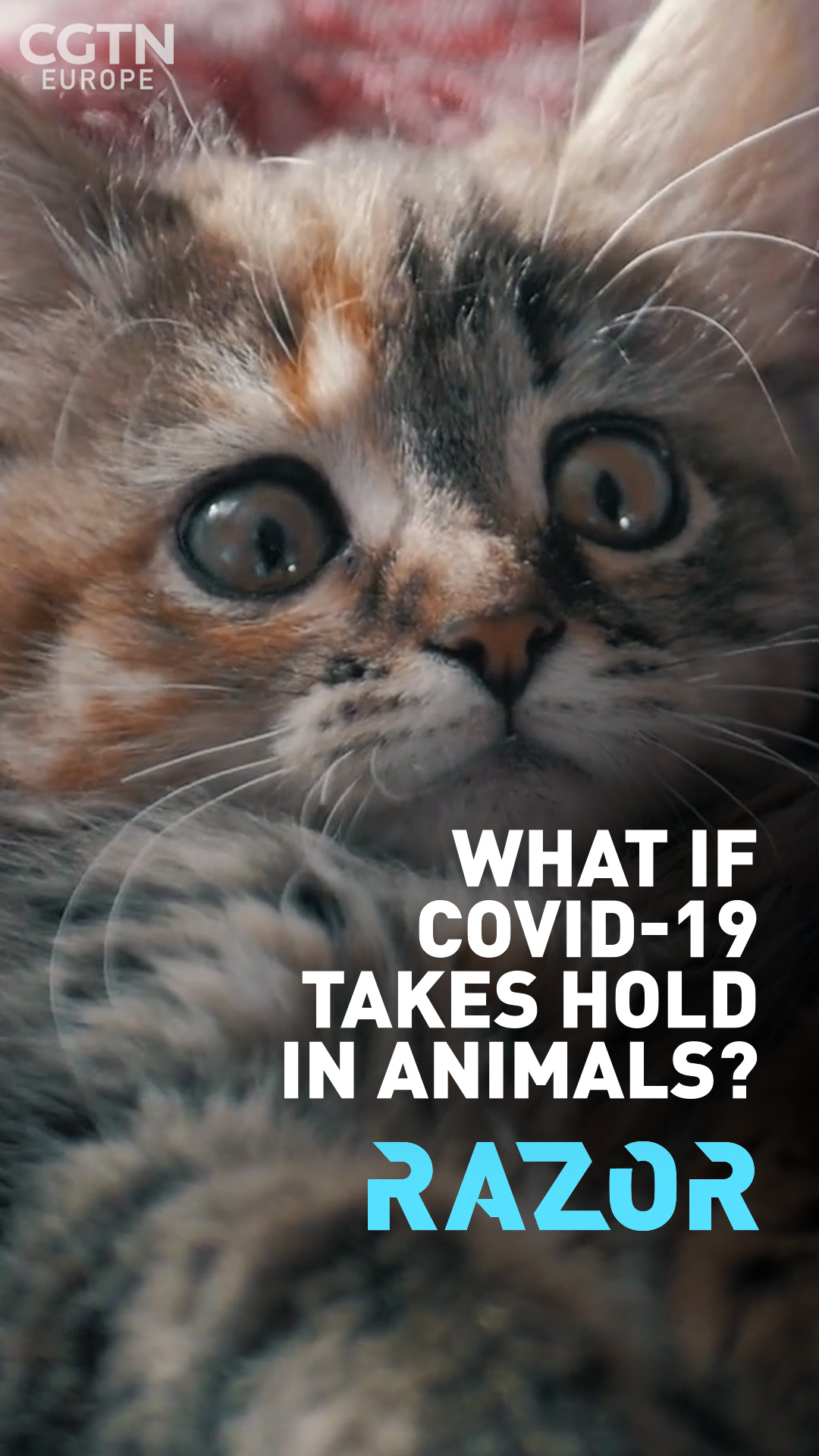02:17

People across the globe may be breathing a collective sigh of relief as multiple trials of SARS-CoV-2 vaccines have been successful, but the threat is still very real for the animal kingdom, and that could create more problems for humans in the future.
Tony Goldberg, professor of epidemiology at the University of Wisconsin in the U.S., has been studying the ecology and evolution of infectious diseases in nature.
Coronaviruses are widespread in animals, but when the SARS-CoV-2 virus emerged, the transmissibility of the disease took Goldberg and his colleagues by surprise. They wondered if it could be transmitted back from humans to animals.
Goldberg's team has studied the West Nile virus as an example of how diseases can take hold in the world.
"It established in wild bird populations here and now has an enzootic cycle, meaning it's perpetuated by a transmission cycle between mosquitoes and birds and then it spills over into people and other mammals every year in late summer," says Goldberg.
"We'll never get rid of it because it's in wildlife.
"So if that were to happen with SARS-CoV-2 it would be a game-changer for our ability to eradicate the virus."
In Denmark, the virus transferred from humans to mink and back to humans, mutating in some cases. Mink are the only animals known for sure to have passed the virus to humans.
It led to a mass cull of the animals.
"When viruses switch host, they tend to adapt to those new hosts and mutate and evolve and there is some evidence that that has been happening on a limited scale in mink," says the epidemiologist. "The fear there, I don't think is [that it is] some Frankenstein monster virus.
"But it would be terrible, especially with the great news about vaccines that's come out recently, if the changes that happen in animals were such that they allowed the virus to evolve around the vaccines we [have] created.
"Knowing what I do about the virus and the vaccine, I don't think that's a high possibility but it will be such a terrible thing to happen that we should consider it seriously."

There is also an animal welfare perspective to consider.
Mareike Janiak, a postdoctoral research associate at the University of Salford, was involved in a study by the University of Calgary which assessed the risk that the coronavirus presents to primates. They examined the genome sequences of the ACE2 receptor for the virus, this receptor is common in all mammals.
Human respiratory viruses, even the common cold, can kill wild primates.
"This vulnerability was concentrated in the primates that are most closely related to us," says Janiak. "More vulnerable are the great apes such as the orangutans, gorillas, chimpanzees, bonobos and also the rest of the primates that live in Africa."
COVID-19 has caused so much death and hardship around the world but when it comes to animals and primates, could it cause devastation?
Janiak believes it could, but acknowledges that there are several hypotheticals at this stage when it comes to COVID-19.
"Ebola has shown us how devastating it can be when you have an outbreak among wild gorillas," says Janiak. "You know 5,000 gorillas died from Ebola and that is a massive portion of their remaining population."
There is also a worry that experts working with animals could have a knee-jerk reaction when infectious diseases are found in animals.
"That is a very big concern for us. And the main point of our research was to highlight that humans are a risk to wild primates, not the other way around," cautions Janiak. "Just because an animal can get infected doesn't mean that it will get sick.
"We've seen a couple of examples of cats and dogs becoming infected. Dogs don't seem to actually get sick based on the research I've seen.
"There was a very famous example in the Bronx Zoo, where some of the large cats got infected from a keeper, but they don't seem to get as sick as humans do. And also, very importantly, they can't seem to pass the virus back to humans."
Goldberg says there are teams around the world trying to predict which animals could become infected.
Genetically, humans are similar, so vaccines can have a positive impact, but there is no way to vaccinate every species of animal. The last thing ecologists and conservationists want to see is mass culling of animals that have no control over the actions and movement of humankind.
"We're looking at the possibility that SARS-CoV-2 could move back into bats in North America and that would be a catastrophe, because once viruses become established in wildlife reservoirs, they are very difficult to eradicate," explains Goldberg.
Goldberg believes the best way to prevent the transmission of the virus to the animals is to control it in people, "because if it does get to the animals, we don't have good options. It's not clear, for example, how we would vaccinate wild apes against coronavirus."
06:05


